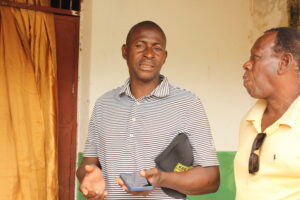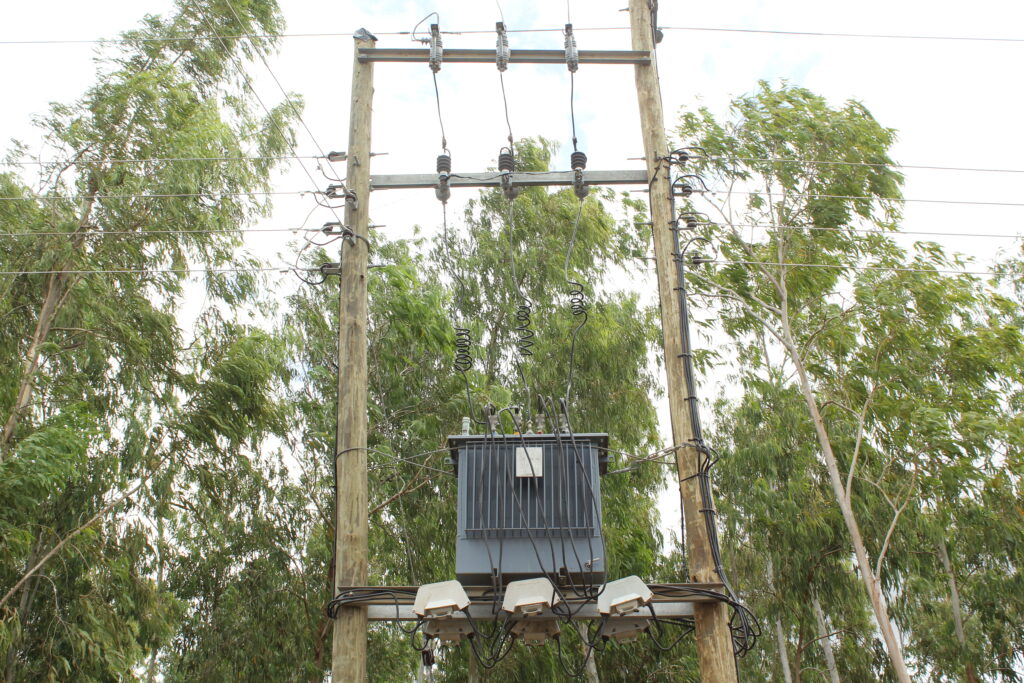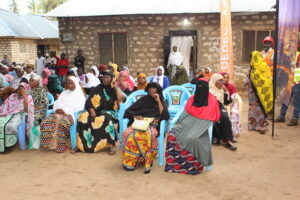BY SHABAN OMAR
For years, Mwafitina Bakari and Fatuma Mwadosho could only dream of flicking a switch and seeing light fill their homes.
Nights in Mkokoni village, Matuga sub-county, were long and dark, with families relying on kerosene lamps and firewood.
Today, their dream has finally come true.
The two are among 202 residents who have recently been connected to electricity under the government’s Last Mile Connectivity Initiative.
The project, which was commissioned earlier this month by Energy Cabinet Secretary Opiyo Wandayi alongside Kwale Governor Fatuma Achani, has brought a new dawn to this once-forgotten fishing and farming community.
The program is being implemented by Kenya Power inpartnership with the Rural Electrification and Renewable Energy Corporation REREC.
For decades, Mkokoni villagers depended on the ocean and their small farms for survival, yet the lack of electricity remained a major setback.

Without proper preservation facilities, fishermen were forced to sell their catch at throwaway prices before it spoiled.
Farmers, too, suffered from post-harvest losses due to the inability to store or process their produce.
Poverty thrived in the shadows of darkness. But the arrival of electricity has sparked hope.
“We used to suffer, sometimes selling fish for as little as half the price just to avoid losses. Now, with electricity, we can think of cold storage, and even processing to earn better,” said Bakari.
For Bakari, the lack of electricity was more than just an inconvenience, it was a daily struggle that cut deep into his dignity.
He recalled how, for years, he had no choice but to take his fish to the next village several kilometres away for storage.
The journey was both tiring and costly, as he had to pay a fee to keep his perishable goods in other people’s facilities.
“It was not only expensive but also humiliating. I felt inferior, depending on others to preserve what I had worked hard for,” he said.
He added that at times, the money he made from fishing was spent entirely on storage.
Now, with electricity finally in Mkokoni, Bakari said that burden is behind him.
For the first time, he is planning to invest in his own freezer and other electronic gadgets to better his life.
He is also making new plans for his fishing business. One of his priorities is to buy cooler boxes since ice will now be readily available within the village.
“For the first time, I can think of storing my fish properly. Cooler boxes will allow me to transport fish over longer distances without worrying about it going bad. That means I can reach bigger markets and earn more,” he said.
Bakari said with access to ice, he will further have the power to bargain for better prices instead of accepting whatever is offered as it was before.
On her part Mwadosho, echoed the sentiment, adding that electricity will not only transform businesses but also homes.
She said the children will now study comfortably at night and improve their academic performance.
For years, Mwadosho tried to bridge the gap left by the absence of electricity through a small solar panel fixed on her rooftop.
She said it was cheaper than buying kerosene every day, but it came with its own frustrations.
“Solar power helped a little, but it was never reliable. Whenever the weather was bad, the panel produced little or no electricity at all,” she said.
Mwadosho said oftentimes her children would prepare for exams by candlelight because the solar lamp had no charge.
As a mother of three, she said the experience was heartbreaking and felt like she was failing her children.
Mwadosho said with the Rural Electrification Project now reaching her doorstep, her hope has been renewed.
“This power is constant. I can plan my life knowing my children can study at night, and we can use appliances without fear of blackouts every time it rains,” she said.
For Mwadosho, electricity is more than light. It is an enabler for the dreams she has carried silently for years. She plans to start a small tailoring business at home, using an electric sewing machine, which will not only boost her income but also reduce the burden on her husband, a small-scale farmer.
She also believes electricity will reduce household costs in the long run and will no longer spend so much on kerosene, candles, or the daily trips to charge phones in nearby villages.
Like many women in Mkokoni, Mwadosho sees electricity as a door to empowerment.
She said with light in homes and opportunities to run small businesses, she said women will no longer be confined to household struggles but will be able to contribute meaningfully to the community’s growth.
Mwadosho said beyond economics, electricity is also expected to reduce insecurity in the village.
She said previously, residents feared walking at night due to poor visibility, but street lighting is now being installed, making evening activities safer and sparking a 24 hour economy in the area.



